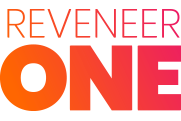I’ll never forget the (brief) conversation I had with a prospect: “Are you kidding me?!” the prospect angrily exclaimed, “I told you two months ago we use your competitor. I also told you to call me back six months from now when we’re nearing renewal, but since you clearly don’t listen, take me off your list and do NOT call back” CLICK
I was shocked. A glance at Salesforce showed that I hadn’t logged any activity on this lead in nearly six months, so how was it possible that I had talked to them two months ago?
Then it dawned on me: I had completely forgotten to log the activity (and my notes) in Salesforce.
Detailed notes and activity logging have many benefits. We have a common saying here at Reveneer: If it isn’t in Salesforce, it didn’t happen. Sure, detail is great, but why is it so critical?
It benefits you.
This should be at the forefront of every salesperson’s mind. Logging notes and activity in your CRM gives you relevance when you finally get ahold of your prospect, gives you context when you follow up with a prospect, and, most importantly, lets you avoid the same mistake I made. The more detail you have about your calls, the better it will be for you in the long run. Even if the detail as little as, “Not interested- hung up” it is still important to put into your CRM. This also reinforces your organization’s “Rules of Engagement” by letting you know if you’re stepping on a colleague’s toes by calling their leads.
It benefits the ISRs, Field Reps, and Account Executives that you pass meetings on to.
Not only do notes and activity logging prevent you from making the same mistake I did, but it also benefits your colleagues as well. You could cultivate bits and pieces of information about a prospect and their company over multiple calls. Logging this in your CRM will give your colleagues the ability to see the detail before a discovery call/demo with your prospect, or even later down the pipeline. This, in turn, will cut down on redundant questions on discovery calls and demos and allow the sales process to go more smoothly.
It benefits your sales leadership.
If you’ve ever had a weekly, monthly, or quarterly meeting with your sales manager/director, chances are you’ve had to put together notes from some of your top conversations. Keeping these notes detailed and up to date not only helps you during these meetings but also allow your higher-ups to use your CRM as a single source of truth between check-ins.
So, remember: If it isn’t in your CRM, it didn’t happen. Take a minute to log your notes after each call!



